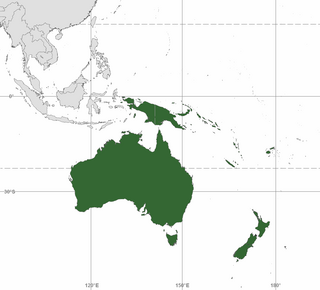
A chemist is a graduated scientist trained in the study of chemistry, or an officially enrolled student in the field. Chemists study the composition of matter and its properties. Chemists carefully describe the properties they study in terms of quantities, with detail on the level of molecules and their component atoms. Chemists carefully measure substance proportions, chemical reaction rates, and other chemical properties. In Commonwealth English, pharmacists are often called chemists.

The Cucurbitaceae, also called cucurbits or the gourd family, are a plant family consisting of about 965 species in 101 genera. Those of most agricultural, commercial or nutritional value to humans include:

D, or d, is the fourth letter of the Latin alphabet, used in the modern English alphabet, the alphabets of other western European languages and others worldwide. Its name in English is dee, plural dees.

A language family is a group of languages related through descent from a common ancestor, called the proto-language of that family. The term family is a metaphor borrowed from biology, with the tree model used in historical linguistics analogous to a family tree, or to phylogenetic trees of taxa used in evolutionary taxonomy. Linguists thus describe the daughter languages within a language family as being genetically related. The divergence of a proto-language into daughter languages typically occurs through geographical separation, with different regional dialects of the proto-language undergoing different language changes and thus becoming distinct languages over time.

M, or m, is the thirteenth letter of the Latin alphabet, used in the modern English alphabet, the alphabets of several western European languages and others worldwide. Its name in English is em, plural ems.

A physicist is a scientist who specializes in the field of physics, which encompasses the interactions of matter and energy at all length and time scales in the physical universe. Physicists generally are interested in the root or ultimate causes of phenomena, and usually frame their understanding in mathematical terms. They work across a wide range of research fields, spanning all length scales: from sub-atomic and particle physics, through biological physics, to cosmological length scales encompassing the universe as a whole. The field generally includes two types of physicists: experimental physicists who specialize in the observation of natural phenomena and the development and analysis of experiments, and theoretical physicists who specialize in mathematical modeling of physical systems to rationalize, explain and predict natural phenomena.

A statute is a formal written enactment of a legislative body, a stage in the process of legislation. Typically, statutes command or prohibit something, or declare policy. Statutes are laws made by legislative bodies; they are distinguished from case law or precedent, which is decided by courts, regulations issued by government agencies, and oral or customary law. Statutes may originate with the legislative body of a country, state or province, county, or municipality.

Substance misuse, also known as drug misuse or, in older vernacular, substance abuse, is the use of a drug in amounts or by methods that are harmful to the individual or others. It is a form of substance-related disorder. Differing definitions of drug misuse are used in public health, medical, and criminal justice contexts. In some cases, criminal or anti-social behavior occurs when the person is under the influence of a drug, and long-term personality changes in individuals may also occur. In addition to possible physical, social, and psychological harm, the use of some drugs may also lead to criminal penalties, although these vary widely depending on the local jurisdiction.

The Tiger is the third of the 12-year cycle of animals which appear in the Chinese zodiac related to the Chinese calendar. The Year of the Tiger is associated with the Earthly Branch symbol 寅.

Killed in action (KIA) is a casualty classification generally used by militaries to describe the deaths of their own personnel at the hands of enemy or hostile forces at the moment of action. The United States Department of Defense, for example, says that those declared KIA did not need to have fired their weapons, but only to have been killed due to hostile attack. KIAs include those killed by friendly fire in the midst of combat, but not from incidents such as accidental vehicle crashes, murder or other non-hostile events or terrorism. KIA can be applied both to front-line combat troops and to naval, air and support troops.
A Bachelor of Business Administration (BBA) is an undergraduate degree in business administration awarded by colleges and universities after completion of four years and typically 120 credits of undergraduate study in the fundamentals of business administration.
These are a series of incomplete lists of unusual deaths, unique or extremely rare circumstances of death recorded throughout history, noted as being unusual by multiple sources.
Etymology is the study of the origin and evolution of words—including their constituent units of sound and meaning—across time. In the 21st century a subfield within linguistics, etymology has become a more rigorously scientific study. Most directly tied to historical linguistics, philology, and semiotics, it additionally draws upon comparative semantics, morphology, pragmatics, and phonetics in order to attempt a comprehensive and chronological catalogue of all meanings and changes that a word carries throughout its history. The origin of any particular word is also known as its etymology.

Macular degeneration, also known as age-related macular degeneration, is a medical condition which may result in blurred or no vision in the center of the visual field. Early on there are often no symptoms. Over time, however, some people experience a gradual worsening of vision that may affect one or both eyes. While it does not result in complete blindness, loss of central vision can make it hard to recognize faces, drive, read, or perform other activities of daily life. Visual hallucinations may also occur.
A cousin is a relative that is the child of a parent's sibling; this is more specifically referred to as a first cousin.

Scorpio is the eighth astrological sign in the zodiac, originating from the constellation of Scorpius. It spans 210–240° ecliptic longitude. Under the tropical zodiac, the Sun transits this sign on average from October 23 to November 21. Depending on which zodiac system one uses, someone born under the influence of Scorpio may be called a Scorpio or a Scorpionic.

Australasia is a subregion of Oceania, comprising Australia, New Zealand, and sometimes including New Guinea and surrounding islands. The term is used in a number of different contexts, including geopolitically, physiogeographically, philologically, and ecologically, where the term covers several slightly different but related regions.












